8 Foods You Should Never Give a Baby


Written and verified by the doctor Nelton Abdon Ramos Rojas
The list of foods you should never give a baby is typically invaluable for new parents.
When your child is growing up, you naturally want to take care of them and protect them. The most complete and nutritious food you can give your baby is breast milk.
However, it’s also necessary to incorporate certain other foods into their diet and they depend on the child’s state of growth.
The ideal age to start this complementary diet is around six months of age. By this time your baby is able to remain seated and digest other foods properly.
In general, a baby’s diet will usually include some simple, light dishes like fruit and vegetable puree. You also need to consider the foods that you should never give your little one because they could be harmful to their health.
Foods you should never give a baby under 1 year old
There are certain foods that you should never feed a baby. Today, we’ll share this list with you to serve as a basis for your meal plans.
1-Sugar
The harmful effects of consuming too much sugar are well known. Avoid adding sugar to bottles or other beverages because you’ll only be getting them accustomed to eating sweet foods.
A baby has not yet fully developed their palate, so they can’t distinguish between sweet or bland foods.
- If you still want to sweeten your baby’s meals, use mashed banana or a little breast milk to avoid this early dependence.
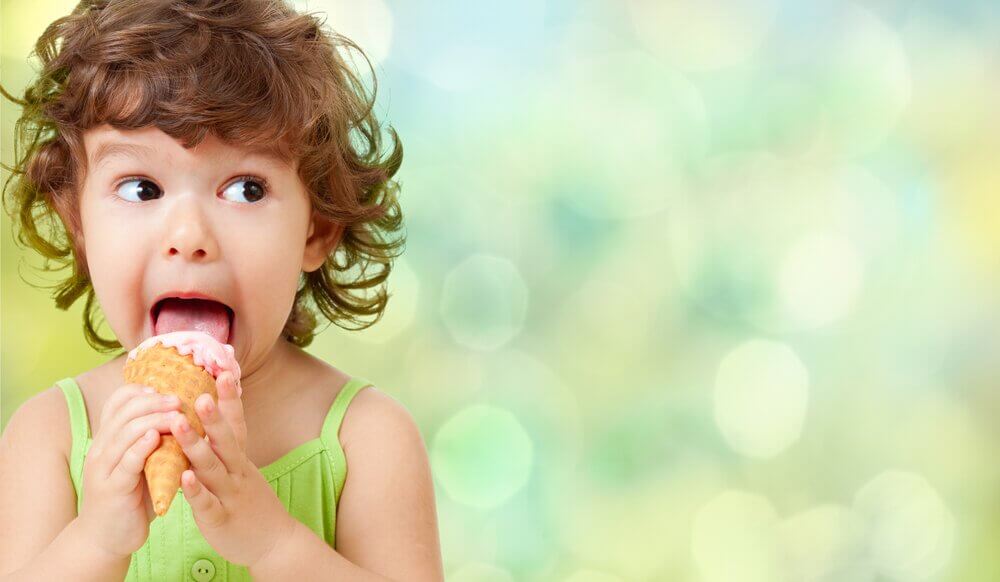 2-Honey
2-Honey
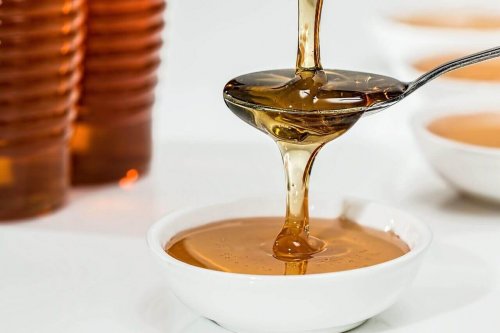
Although it might seem like a natural alternative to sweetening your baby’s food, it’s not a good idea to replace sugar with honey.
The consumption of honey by children under a year old has been associated with botulism (a bowel disease that causes constipation and can make it difficult to breastfeed).
See also: 7 great reasons to drink milk with honey
3-Salt
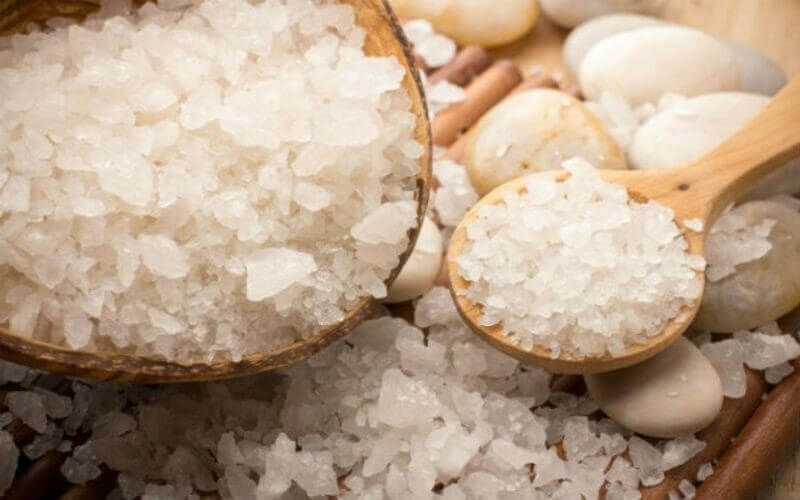
Just like the two previous foods, salt is used to enhance the flavor of food and is a bad idea to add to your baby’s diet until they are at least a year old, because it can seriously threaten the health of their kidneys.
A baby’s kidneys are not sufficiently developed to handle large quantities of sodium. You can add it to their food in moderation after their first birthday.
4-Fish and seafood
While fish is considered to be a very healthy source of protein, it’s not recommended for babies. Some fish species are high in mercury, which can severely affect a child’s nervous system.
It’s also a bad idea to introduce them to shrimp, prawns, and other crustaceans because their cadmium content can negatively impact a child’s kidney development and function.
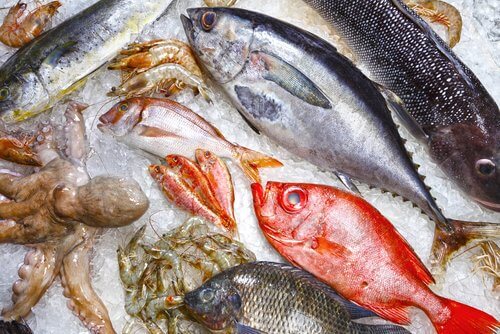 5-Low-fat dairy products
5-Low-fat dairy products
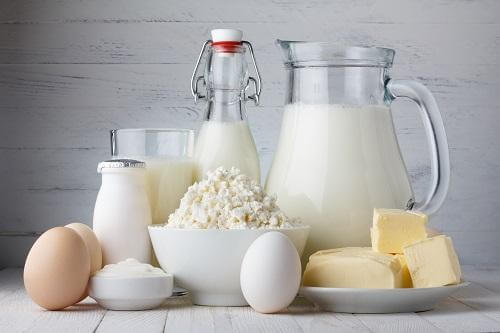
While regular milk should never be a substitute for breast milk, it’s a good idea to provide your child with some healthy sources of animal fat. These include items like yogurt and cheese, in moderation.
You should avoid giving your baby non-fat dairy products, however, because they’ve undergone numerous processes to eliminate fat, and this fat provides the essential source of vitamins and calories.
You may be interested: Sugar-free desserts you should try
6-Certain vegetables
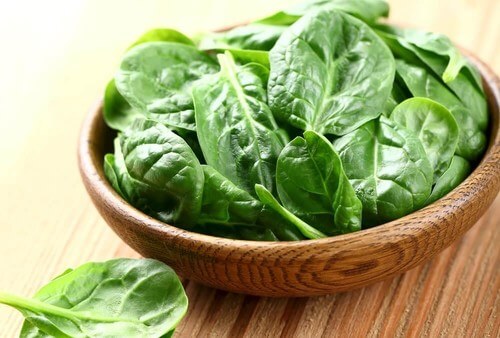
It’s true that your child should eat vegetables to provide their bodies with the nutrients and vitamins they need. Among the foods you should never give your baby, however, include vegetables like:
- Swiss chard
- Spinach
- Seaweed
These vegetables contain high concentrations of nitrate, which causes methemoglobinemia, a condition characterized by a bluish discoloration of the skin. It affects the mucous membranes and reduces the amount of oxygen in the bloodstream.
7-Caffeinated beverages
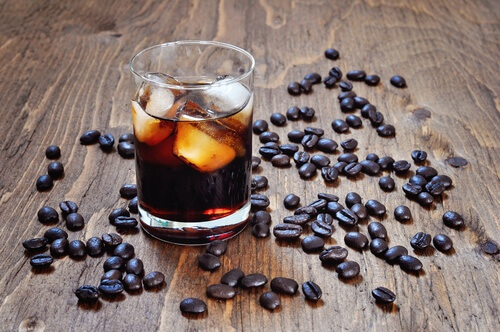
Some parents aren’t aware of how harmful it can be to give caffeinated beverages to a baby, so we’ve added them to the list.
Coffee, sodas, and tea can contain large quantities of caffeine and other additives that will suppress the absorption of iron and calcium. They’re also directly responsible for the over-stimulation of a baby’s nervous system.
8-Nuts and pre-packaged snacks
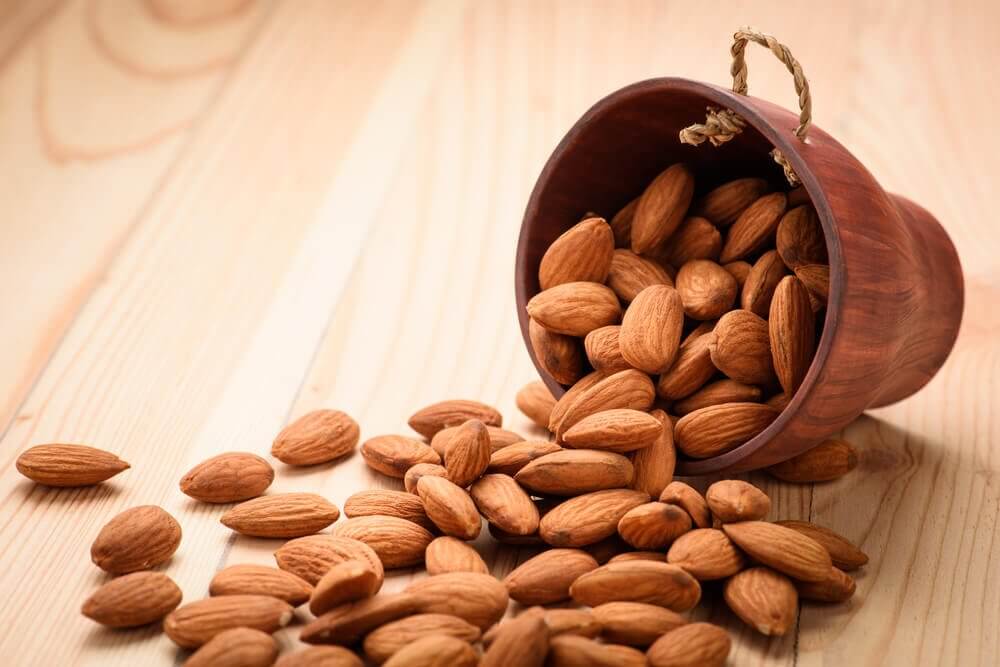
You should never give nuts to a baby under a year old because they can be a choking hazard. These products can be added to your child’s diet once they’re five or more and only under supervision.
It’s also not a good idea to allow them to eat things like potato chips, baked goods, and other commercial products. These typically contain large quantities of sugar or salt and other additives that can harm your baby’s health.
It’s essential that you carefully control the foods you give your child when they’re very young. When you start adding solid foods to their diet, you should be aware of the effects they have on their health.
If you have any doubts, talk with a specialist first. Don’t forget the tips we’ve shared in this article.
All cited sources were thoroughly reviewed by our team to ensure their quality, reliability, currency, and validity. The bibliography of this article was considered reliable and of academic or scientific accuracy.
- Mis NF., Braegger C., Bronsky J., Campoy C., et al., Sugar in infants, children and adolescents: a position paper of the european society for paediatric gastroenterology, hepatology and nutrition committee on nutrition. J Pediatr Gastroenterol Nutr, 2017. 65 (6): 681-696.
- Wikstrom S., Holst E., Infant botulism- why honey should be avoided for children up to one year. Lakartidningen, 2017.
- Johnson RJ., Sánchez Lozada LG., Andrews P., Lanaspa MA., Perspective: a historical and scientific perspective of sugar and its relation with obesity and diabetes. Adv Nutr, 2017. 8 (3): 412-422.
This text is provided for informational purposes only and does not replace consultation with a professional. If in doubt, consult your specialist.








